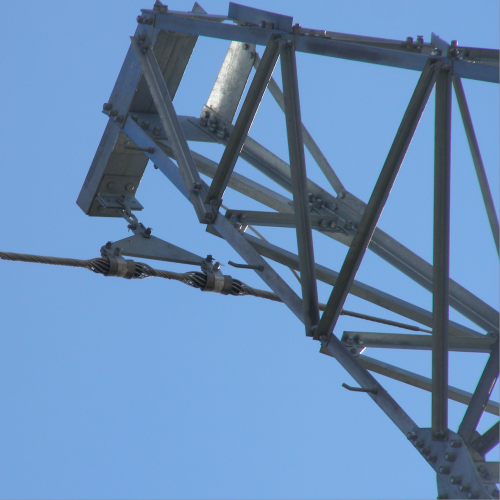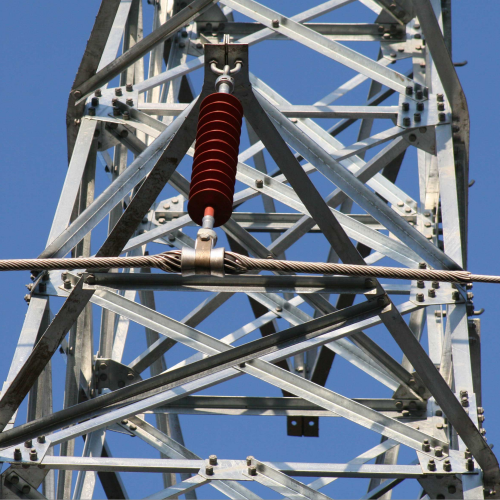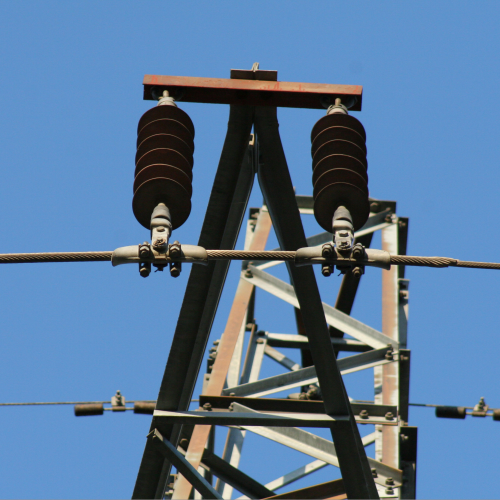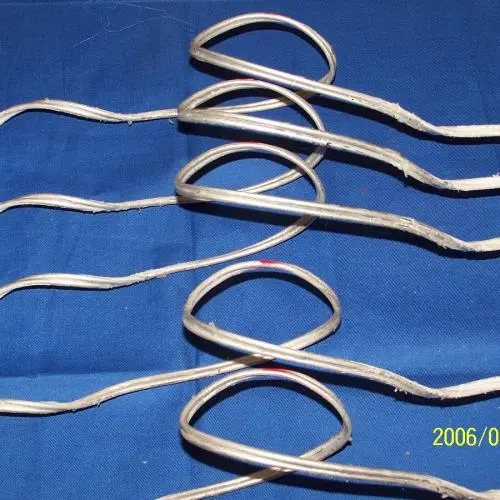In the power, communication, railway and other industrial fields, metal cable ties have gradually replaced traditional plastic cable ties and become an indispensable fixing solution in cable systems. However, in harsh environments with high pressure, high temperature, high corrosion or high vibration, buyers often face a core problem:
"Is tensile strength important, or is corrosion resistance more critical?"
In fact, both properties are important, but the weights are different in different application scenarios.
1. Tensile strength is the basic indicator to ensure the stability of cables.
In scenarios such as high-voltage transmission lines, railway signal systems, and outdoor communication base stations, cables often face:
Long-distance hanging or tensioning.
Continuous vibration (such as train passing, wind load).
External force disturbance (construction traction, animal interference).
At this time, if the strength of metal cable ties is insufficient, it is easy to loosen, cable shake, interface wear, and even conductor damage. This not only endangers the stability of the line, but also may cause serious maintenance costs.
The general tensile strength of metal cable ties can reach more than 400N, which is suitable for most cable fixing needs. For special ultra-high voltage lines or locations with concentrated stress, thick widened design or double locking structure can also be used.
2. Corrosion resistance determines the safety of long-term operation of the system.
In coastal areas, mountainous areas, humid areas or chemical areas, metal cable ties are exposed to the following environmental risks for a long time:
Salt spray (such as near coastal cities).
Acidic and alkaline gases (such as industrial parks).
Long-term exposure to sunlight, high humidity or rain.
If the surface treatment of metal cable ties is improper, problems such as rust, breakage, and clamp failure will occur in a short period of time, affecting the service life of the entire cable system and even causing line safety accidents.
In this environment, buyers should pay attention to the following details:
Material selection: 316 stainless steel (high molybdenum content, strong salt spray resistance) is recommended;
Surface treatment: Surface coating, passivation, epoxy coating and other processes are selected to enhance corrosion resistance;
3. Vilun suggests: Performance balance is the key, and application determines priority.
As a metal cable ties manufacturer with many years of industry experience, Vilun suggests:
Do not pursue high strength or excessive anti-corrosion unilaterally, but consider the specific use environment comprehensively;
Reasonably select the width, thickness and locking method of metal cable ties, which can meet the mechanical properties without increasing the construction burden;
For high-risk areas, customized metal cable ties can be provided, such as: heavy-duty, double-layer coated, long-life, etc.
We also welcome you to communicate with our engineering and technical team about specific applications. We can provide professional selection suggestions and long-term supply solutions for your project.





